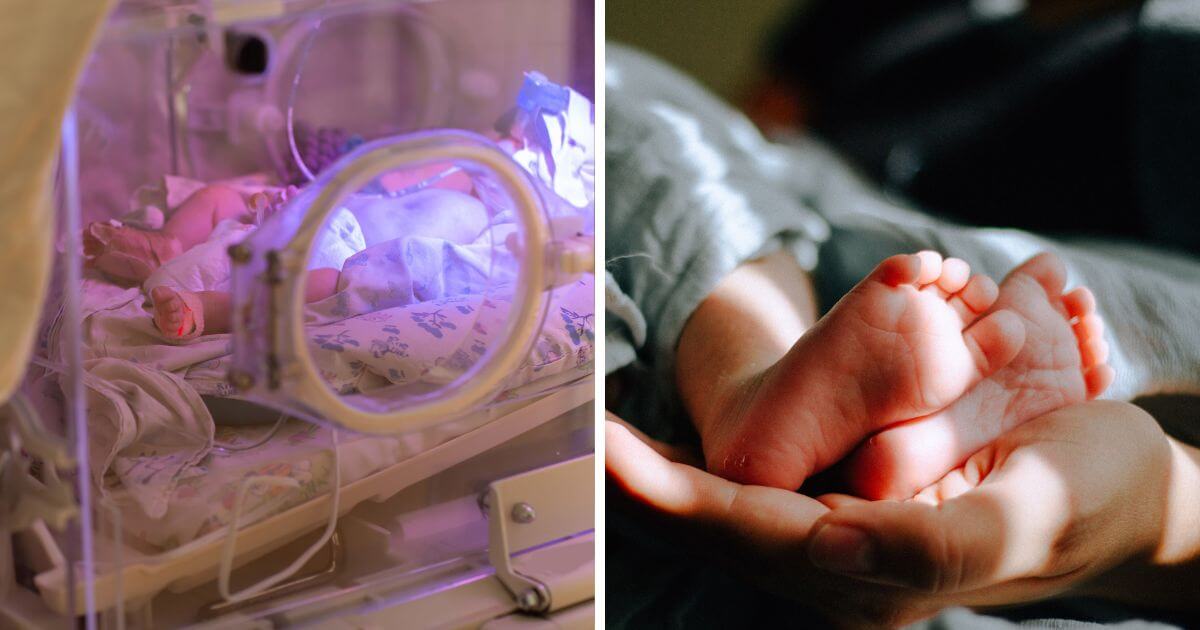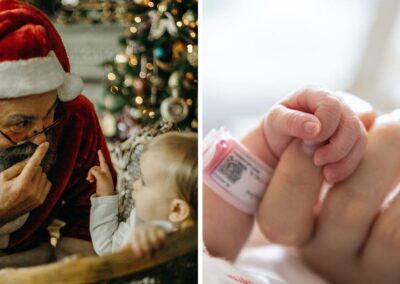A baby born almost 10 weeks before his due date spent the Christmas and New Year holidays in hospital three hours’ drive away from his family’s home, and, despite his challenges, is gearing up to go home soon.
Baby Cohen’s parents, Allison and Dustin, had been spending time with family in North Carolina, when his mum started to notice something wasn’t right. She experienced issues with her blood pressure, difficult headaches, and noticed her face and feet had become swollen.
“I learned very quickly that I had some of the tale-tell signs of preeclampsia”, she explained. “Then, it was my dad’s girlfriend, who also had preeclampsia, who told me I should go get checked out”.
Preeclampsia can be a serious condition and it can only be treated once the baby is delivered. If not addressed, it is possible that the mother will develop fits that can be life-threatening for the mother and baby.
Within a week of her experiencing these symptoms, Cohen’s mum Allison underwent emergency surgery to save her unborn baby at a hospital in Charlotte.
“The last thing I remember the doctor telling me in the room was, ‘You were a lot sicker than we thought’”, she said.
Because Cohen was born so early, his lungs were not fully developed, and he had to spend several weeks with machines helping him to breathe.
“You just go into dad mode to make sure everything is okay”
While Cohen’s mother spent as much time as possible by his side, his father Dustin drove back and forth between the hospital and his two other children back home.
He said “You just tough it out and do what you need to do”.
The medical staff in the neonatal intensive care unit (NICU) also did their utmost to help the family, providing presents and a stocking for Cohen at Christmas. “Trying to get some normalcy in a very abnormal place and in an abnormal situation. It’s so important” said NICU Nurse Manager Phyllis Waddell.
After more than a month in the NICU, Cohen was able to breathe independently and he’s getting stronger every day.
Premature babies’ survival rates are increasingly improving
A number of key studies in recent years have documented the improving outcomes for these extremely premature babies. A 2004 Swedish study found that neonatal survival outcomes between 22 and 25 weeks gestation significantly improve when neonatal hospital staff take a proactive approach in the care of premature babies.
A 2008 study based on a neonatal intensive care unit in London also found that neonatal survival rates at 22 and 23 weeks gestation had improved. In 1981-85, no babies who were born at these gestational ages survived to discharge. However, by 1986-90, 19% did and this increased to 54% in the period 1996-2000.
A study in 2022 found almost four out of five babies born prematurely between 22 and 28 weeks gestation survive to discharge from the hospital. It found that from 2013 to 2018, with infants born between 22 and 28 weeks gestation, “survival to discharge occurred in 78.3% and was significantly improved compared with a historical rate of 76.0% among infants born in 2008-2012”.
Spokesperson for Right To Life UK, Catherine Robinson, said “It is wonderful to hear another story of a premature baby receiving amazing care and support from medical professionals”.
“Prematurely-born babies are a constant reminder that unborn babies are not that different from born babies, just a little smaller and less well developed. And just like born babies, their lives matter too”.












